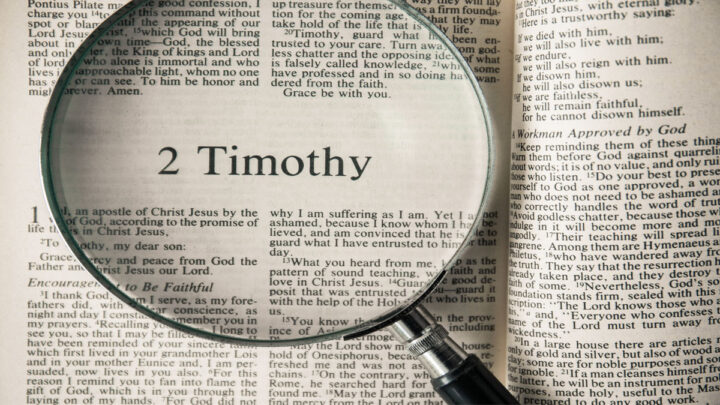I’m drawn to the epistle readings during October from 2 Timothy. I think it’s because it gives us a glimpse into a seasoned follower of Christ, reviewing his life from the perspective of imprisonment. In an era where politicians use heavy words when light ones would do, where social media has us clamoring for one more video of the “greatest burn ever,” where people who are slightly inconvenienced imagine themselves persecuted, it’s a good thing to read and hear again the testimony of one who knew what that actually meant.
What we see in Paul’s words, though, is not self-promotion, not even regret or second-guessing. Not blaming, evasion, or denial. We see him being grateful for those whose faith has shaped his own. At a recent funeral, I heard one preacher fashion these words in a way to refer to those who had shaped the life we were gathered to remember. I wonder how our parishioners would respond if asked to name their faith ancestors? I usually think of Hebrews as the roll call of faith, but naming our own Loises and Eunices could be meaningful to many. What kind of spirit do we claim? Not a timid one, but one that is powerful, loving, and self-controlled. No shame here either!
Paul reminds us that God is faithful and cannot not be faithful. What theology has hold of some of our beloveds that could be shaken loose with the reminder that God is faithful even when we are not? How might we, as preachers, shape congregations that are ready to give witness, whether it is convenient or inconvenient?
How are we keeping the faith for the next generation? Susan Beaumont, in How to Lead When You Don’t Know Where You’re Going, writes of the “Big T” tradition that is behind all our “little t” traditions. What might need delineating about that in your context? While I suppose each of us could have our own example of those who turn their back on the truth and turn to myths, it’s a question best understood, I think, in reference to Christ crucified and risen, not in a way to speak on particular social issues that would cast us in political groups of division. Whether you preach on these texts or not, perhaps a read through will remind you of the shoulders on which we all stand and encourage you for this season.
Grace and peace,
Claire

